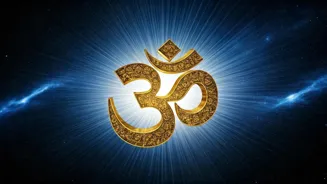Ever wondered where the universe came from? Hubble's redshift discovery was a game-changer, leading us to the Big Bang. Let's unravel this cosmic tale together!
Cosmic Origins Unveiled
Long before anyone imagined the Big Bang, the idea began. The narrative begins with the pivotal moment when Hubble discovered that distant galaxies are moving away from us. This marked a significant turning point, setting the stage for the Big Bang theory and reshaped how we view the cosmos.
Hubble's Redshift Clues
Hubble's observations showed that light from galaxies was stretched, or redshifted. This was a groundbreaking observation. Similar to the Doppler effect, which explains sound, the redshift indicated that galaxies were flying away from us. This provided key insights into the universe's behavior.
Expanding Universe Unfolds
The redshift phenomenon provided support for the notion of an expanding universe. This concept helped scientists understand how galaxies are moving apart, akin to dots on an inflating balloon. This expansion became a central tenet of the Big Bang theory, and has redefined our view of the cosmos.
What Does It Mean?
This journey of discovery significantly shaped our understanding of the universe's origins and evolution. From the redshift to the Big Bang, the implications of Hubble's work go beyond astronomy; they also affect the way we think about our place in the cosmos.
Perspective Shifts
The expanding universe changed everything. This changed our understanding and opened up new possibilities. Understanding the universe's expansion gives us a fresh, inspiring perspective on our place in the cosmic grand design. It's like a giant Diwali firework display!












